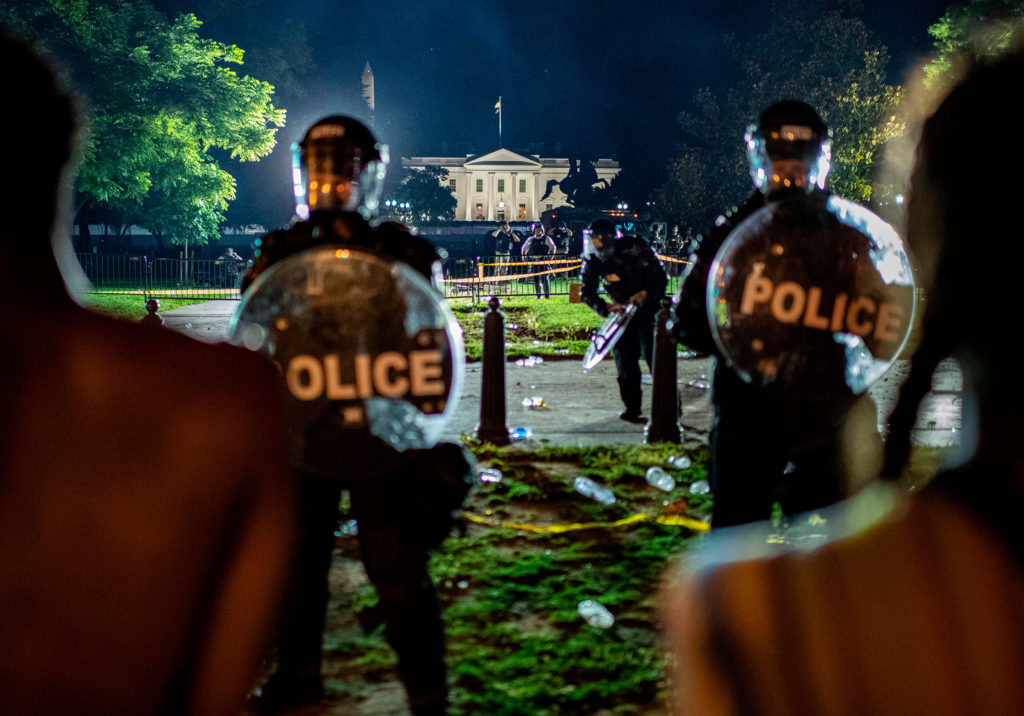By Southwester Staff

The Thirty-First Legislative Meeting of the District of Columbia Council began with a moment of silence. Chairman Phil Mendelson asked Councilmembers to reflect on “deeply-rooted attitudes, often unconscious attitudes, within ourselves, that allow racism to persist in our society.” Thus began hours of debate over an omnibus emergency bill proposing policing reforms. The legislation was introduced by Judiciary and Public Safety Committee Chair Charles Allen and passed unanimously. The Democrat represents Ward 6, which includes the neighborhoods of Southwest and Navy Yard.
The legislation was circulated by Councilmember (CM) Allen’s office on June 4. In the release, Allen was quoted saying the legislation comes amid “Forceful, yet peaceful demonstration” which has “created this moment, and the Council must act to move the cause forward.” The murder of George Floyd, an African American, by Minneapolis police on May 25, sparked nationwide protests over systemic racism, as well as police brutality and abuse of power. Lawmakers around the country were under pressure to answer protesters’ demands, and, as Committee Chair, Allen spearheaded the effort in D.C.
In his introductory remarks at the meeting on June 9, Allen spoke of his “duty to pursue justice – no matter the obstacles or the people in power who stand in the way.” He added, “we are on a journey of truth and reconciliation,” and that it is “uncomfortable to seek truth to that tough on crime power.” Allen said mass incarceration is especially pronounced in D.C.; over 70,000 residents – out of a total of 700,000 – have criminal records. Allen’s legislation bans chokeholds, increases access to body-worn camera recordings, expands membership on the Force Review Board, strengthens procedural justice in consent searches, and more.
The Council proposed several amendments. CM David Grosso (I-At Large) proposed capping the number of police at 3,500 – which would still make D.C. one of the most policed of its peer cities, per capita – as opposed to the set minimum of 3,000 now required by law. There are currently 3,800 Metropolitan Police (MPD) officers. An amendment proposed by CM Trayon White Sr. (D-Ward 8) would require officers to loosen chokeholds if someone an MPD officer is restraining says they cannot breathe. Though these and other amendments were tabled to be discussed in more detail at a later session, the bill was approved unanimously.
The bill still has an uphill battle when it reaches Mayor Bowser’s desk. She’s proposed to increase funding for MPD while decreasing funding to community programs like violence interruption.
The Council also unanimously approved legislation requiring the District Department of Transportation (DDOT) to “publish a report that creates a connected network for cyclists and other non-motorists to traverse the District during the public health emergency and during the recovery period.” CM Mary Cheh (D-Ward 3) highlighted protected bike lanes, expanded sidewalks and other public spaces, and the closure of certain streets to through-traffic as options. DDOT must “implement the report on a staggered timeline basis, 20 miles by September 1, and an additional five miles by November 1,” she said.
The amended measure passed despite some hesitation over DDOT’s authority to close streets and act on recommendations during the period of the public health emergency, and for 270 days thereafter.

